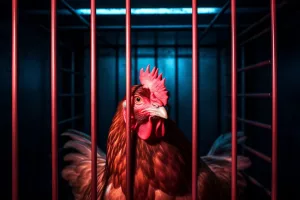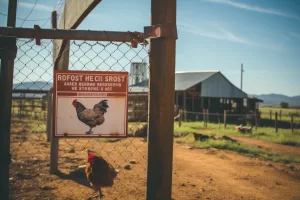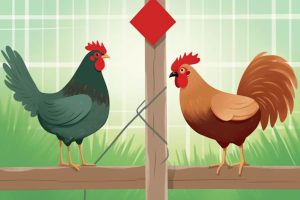In the Western Cape, a new outbreak of avian influenza is hitting both farm birds and wild birds hard, causing many deaths and forcing farmers to cull their flocks. The virus doesn’t stay put it spreads quietly through wetlands and farmlands, showing how closely people, animals, and nature are connected. Communities are stepping up, helping to watch for sick or dead birds and keeping farms clean to stop the spread. This crisis reminds everyone that protecting birds means protecting the whole region’s health, food, and way of life.
South Africa’s avian influenza crisis is exposing the vulnerability of the poultry industry, highlighting the need for transformative changes in food production systems. The crisis has resulted in the culling of 7.5 million chickens, emphasizing the risks posed by the mass production of confined animals. Experts call for a fundamental shift towards a diversified, resilient, and humane food system that is free from animal exploitation, encouraging the transition to a more plantbased food system. This change would benefit not only animal welfare but also the longterm sustainability and resilience of our food systems.
The Western Cape poultry industry is on high alert against avian influenza, following recent outbreaks in other South African provinces. Farmers are urged to take proactive measures to prevent the virus from being introduced by wild birds. The poultry sector is a significant contributor to South Africa’s agricultural economy, creating over 52,000 direct jobs in 2022. Combating avian influenza requires both passive and active surveillance, along with preventative strategies like disinfecting vehicles and isolating new birds. The industry can weather the storm by adhering to biosecurity measures and maintaining vigilance.
Recently, two commercial layer farms in the Paardeberg area of the Western Cape were found to have avian influenza. The Western Cape Government is urging both the agricultural sector and the public to be mindful and limit the spread of the disease to prevent further outbreaks. The disease has already caused the death or destruction of 120,000 birds, as confirmed on April 21 and 25.




